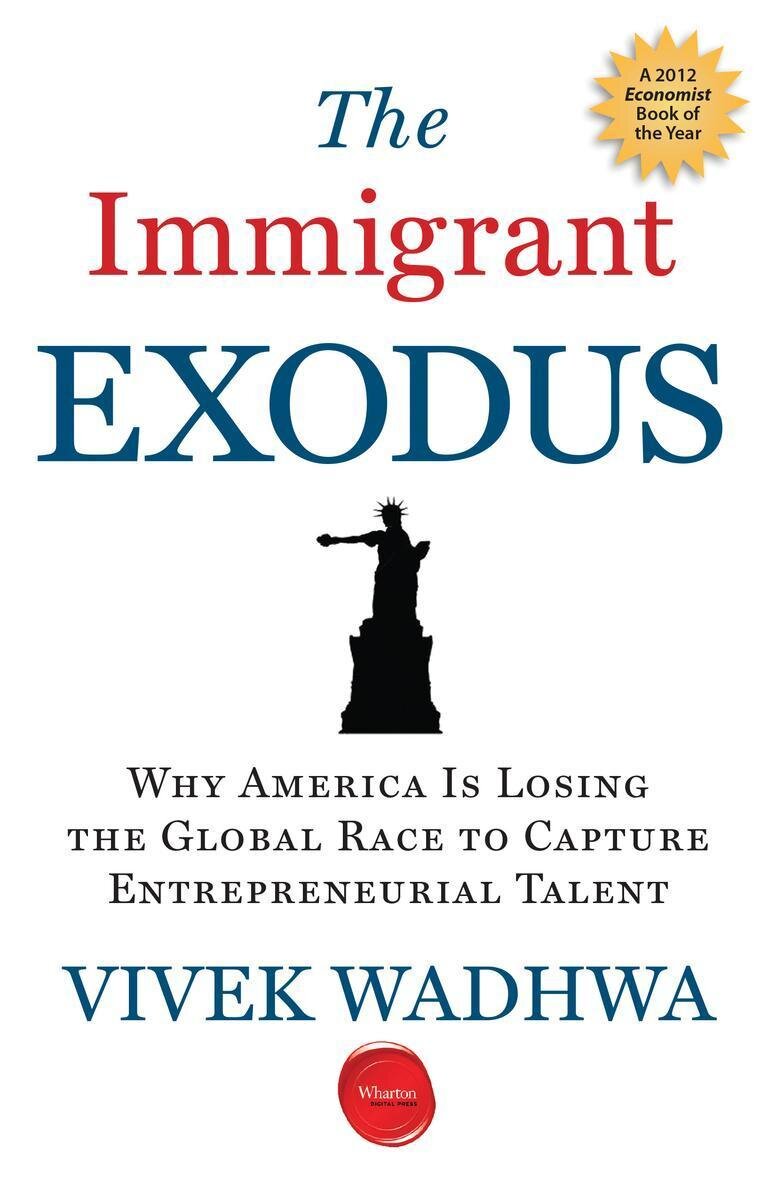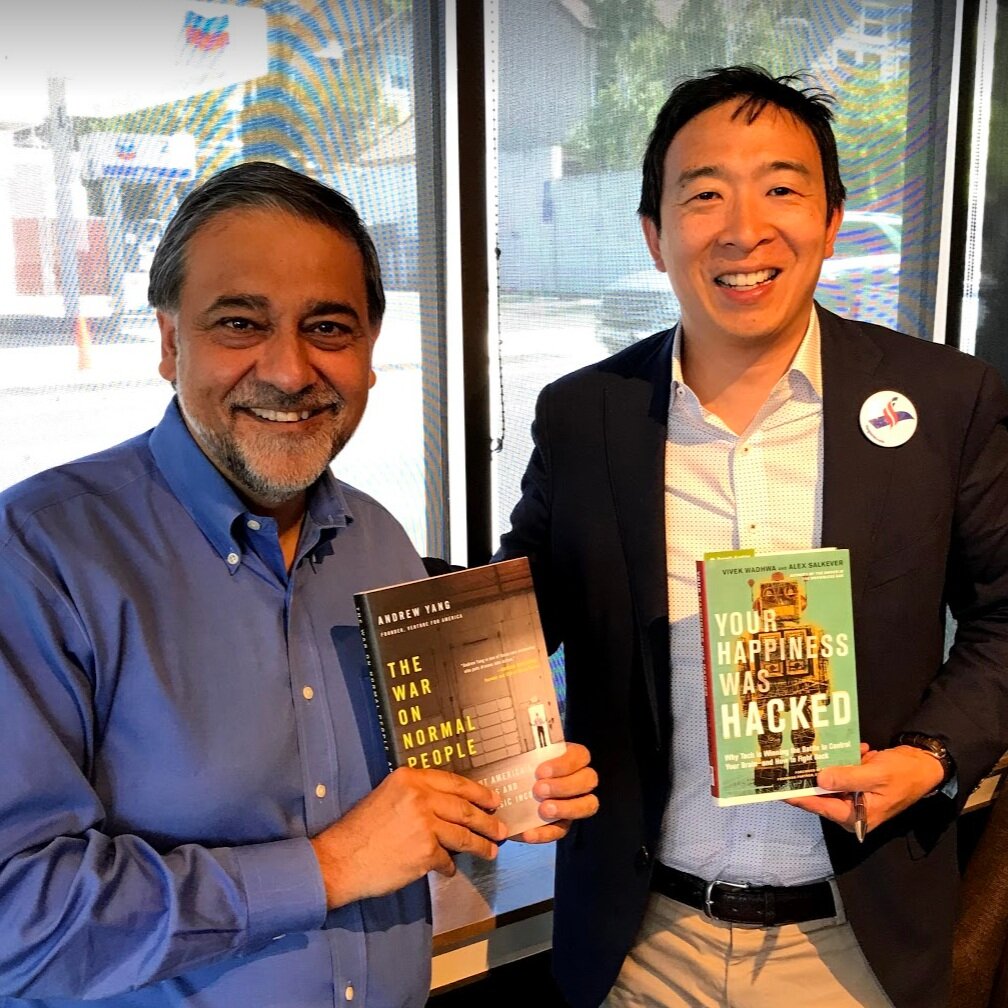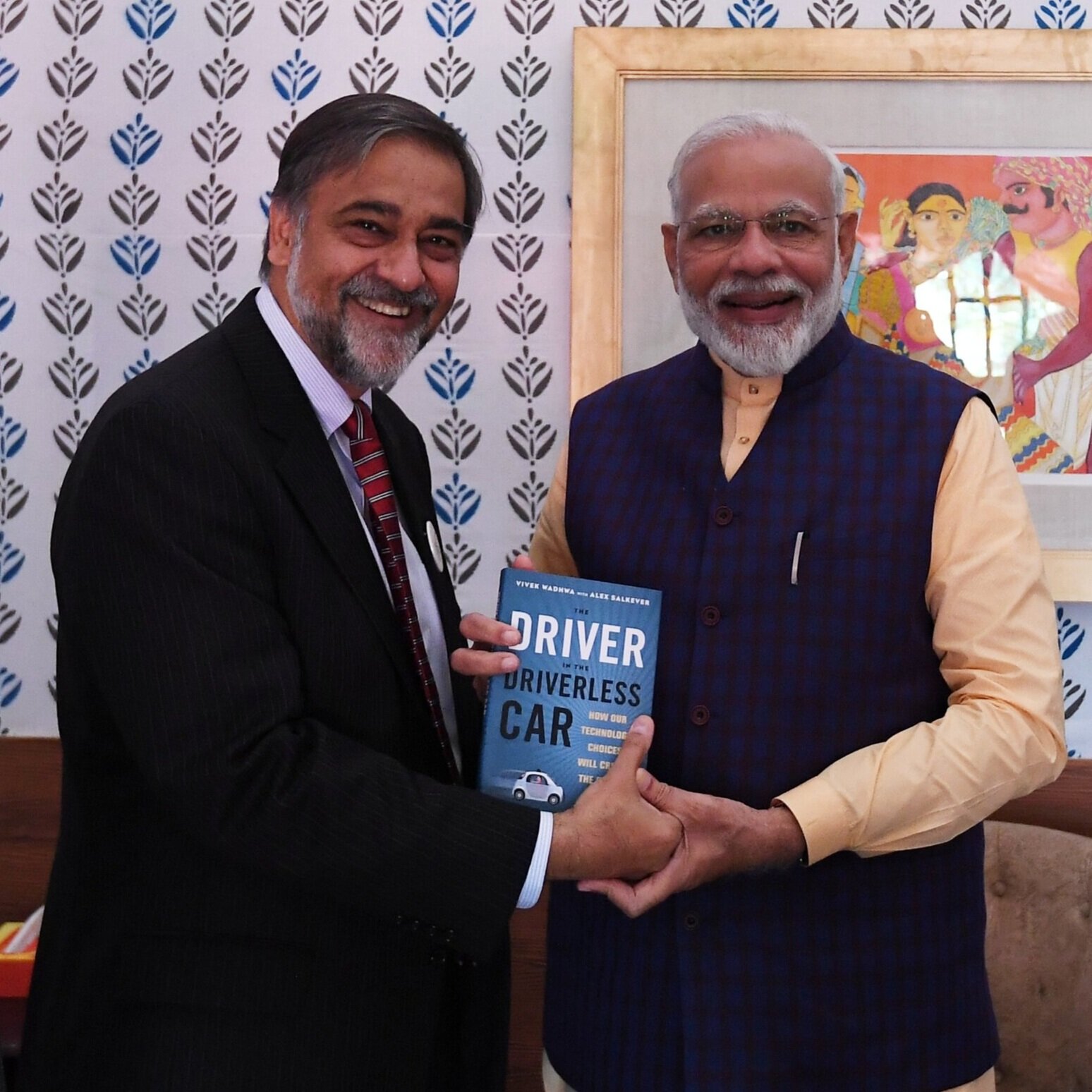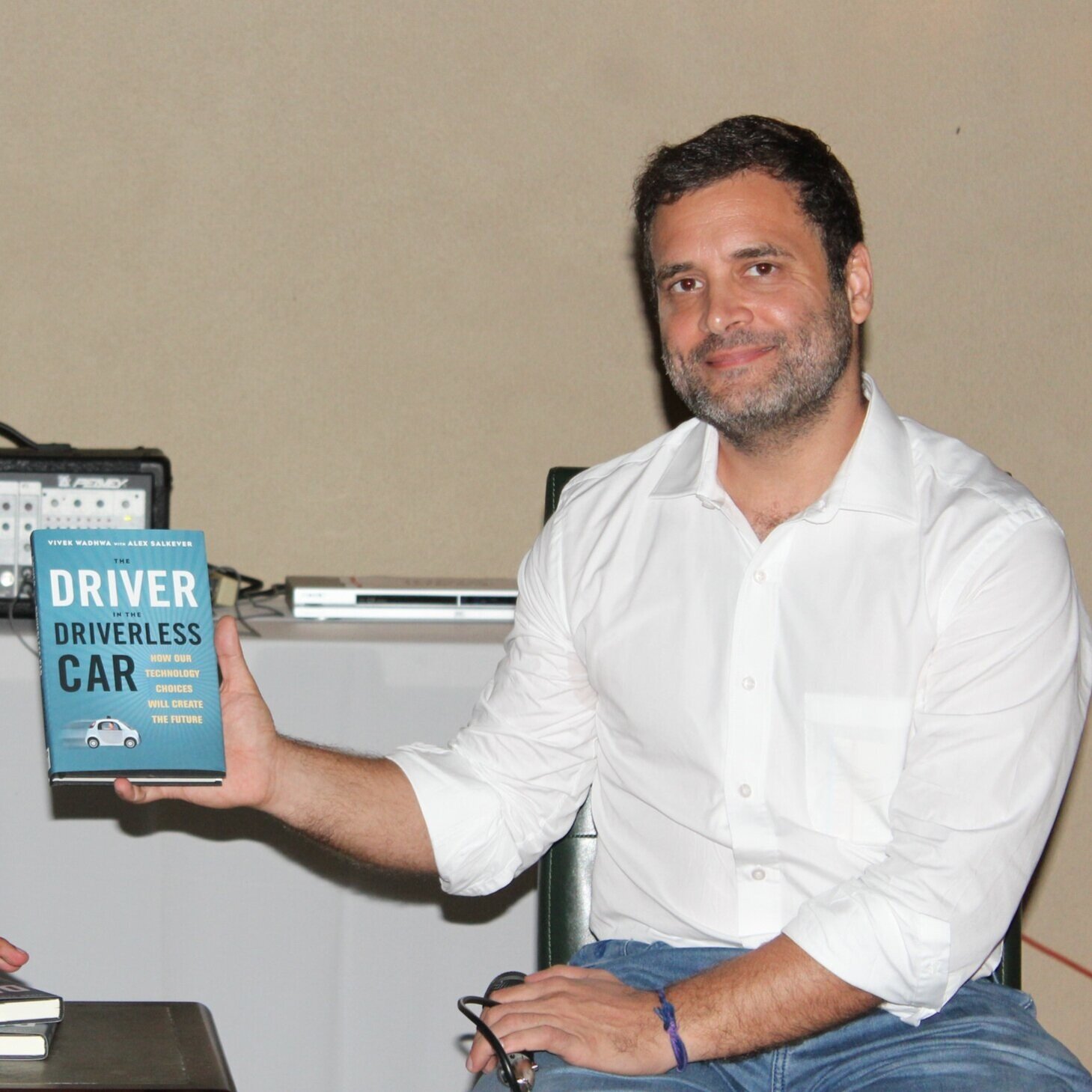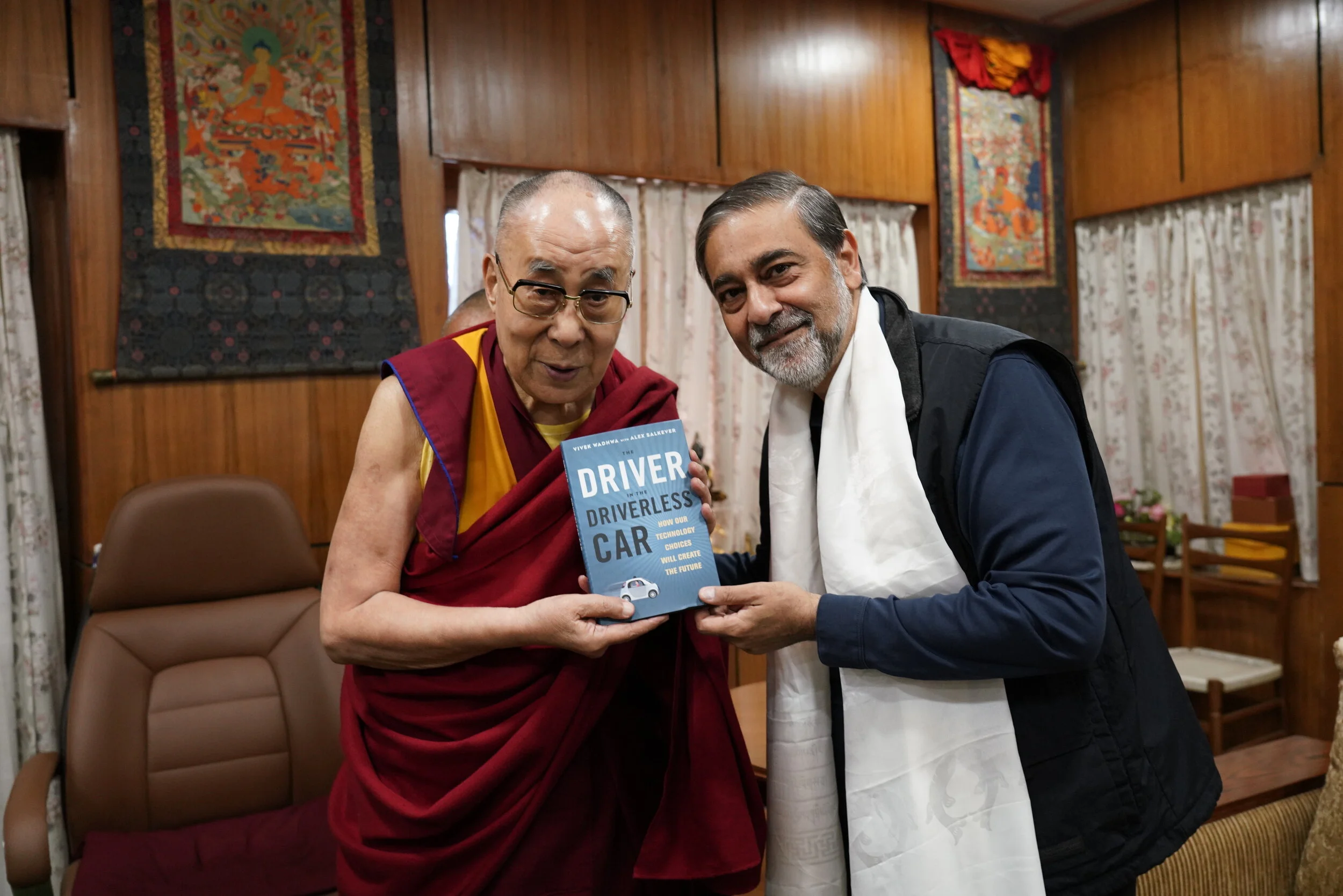
books
FROM INCREMENTAL TO EXPONENTIAL
How Large Companies Can See The Future and Rethink Innovation
Not only can big companies be just as nimble as start-ups, they can out-innovate their challengers by combining a start-up mind-set with the powerful advantages that legacy companies have.
Over and over, we see big legacy businesses getting beaten to the punch by energetic little start-ups. It seems like innovation can come from only the bottom up or from outside in. But tech experts Vivek Wadhwa, Ismail Amla, and Alex Salkever are here to tell you that “big equals slow and stodgy” is a myth. Based on decades of experience working with the world’s leading brands and start-ups, they explore the opportunity legacy companies have to create new markets, supercharge growth, and remake their businesses by combining the scrappy mind-set and tool belt of hypergrowth start-ups with the massive benefits of incumbency: boatloads of customer data, decades of brand equity, robust distribution channels, enormous financial asserts, and more. Equally important, they provide a playbook on how to use their insights in your own company, team, or career. This is a fast-paced, anecdote-rich story that rethinks modern innovation–a book every manager, executive, and ambitious employee will want to read.
Your Happiness Was Hacked
Why Tech Is Winning the Battle to Control Your Brain–and How to Fight Back
We’ve become a tribe of tech addicts–and it’s not entirely our fault.
Taking advantage of vulnerabilities in human brain function, tech companies entice us to overdose on technology interaction. This damages our lives, work, families, and friendships. Swipe-driven dating apps train us to evaluate people like products, diminishing our relationships. At work, we e-mail on average 77 times a day, ruining our concentration. At home, light from our screens is contributing to epidemic sleep deprivation.
But we can reclaim our lives without dismissing technology. Vivek Wadhwa and Alex Salkever explain how to avoid getting hooked on tech and how to define and control the roles that tech is playing and could play in our lives. And they provide a guide to technological and personal tools for regaining control. This readable book turns personal observation into a handy action guide to adapting to our new reality of omnipresent technology.
The Driver in the Driverless Car
How Our Technology Choices Will Create the Future
Astonishing technological advances are arriving in increasing numbers. Scholar and entrepreneur Vivek Wadhwa uses this book to alert us to dozens of them and raise important questions about what they may mean for us.
Breakthroughs such as personalized genomics, self-driving vehicles, drones, and artificial intelligence could make our lives healthier, safer, and easier. But the same technologies raise the specter of a frightening, alienating future: eugenics, a jobless economy, complete loss of privacy, and ever-worsening economic inequality. As Wadhwa puts it, our choices will determine if our future is Star Trek or Mad Max.
Wadhwa offers us three questions to ask about every emerging technology: Does it have the potential to benefit everyone equally? What are its risks and rewards? And does it promote autonomy or dependence? Looking at a broad array of advances in this light, he emphasizes that the future is up to us to create—that even if our hands are not on the wheel, we will decide the driverless car’s destination.
Innovating Women
The Changing Face of Technology
Women in technology are on the rise in both power and numbers, and now it’s more important than ever to not lose that momentum, to “lean in” and close the gender gap. Although they make up half of the population, only 14% of engineers in the United States are women. They take the seeds of technological advancement and build something life-changing, potentially life-saving. The future of technology depends on the full and active participation of women and men working together, and it is vital that women are both educated and encouraged to go into the tech sectors.
Vivek Wadhwa and award-winning journalist Farai Chideya set out to collect anecdotes and essays from global leaders on the future of entrepreneurship. With interviews and essays from hundreds of women in STEM fields, including Anousheh Ansari the first female private sector space explorer, former Google[X] VP and current CTO of the USA Megan Smith, Ory Okolloh of the Omidyar Network, venture capitalist Heidi Roizen and CEO of Nanobiosym Dr. Anita Goel, MD, PhD, Innovating Women offers perspectives on the challenges that women face, the strategies that they employ in the workplace, and how an organization can succeed or fail in its attempts to support the career advancement of women.
The Immigrant Exodus
Why America Is Losing the Global Race to Capture Entrepreneurial Talent
Many of the United States’ most innovative entrepreneurs have been immigrants, from Andrew Carnegie, Alexander Graham Bell, and Charles Pfizer to Sergey Brin, Vinod Khosla, and Elon Musk. Nearly half of Fortune 500 companies and one-quarter of all new small businesses were founded by immigrants, generating trillions of dollars annually, employing millions of workers, and helping establish the United States as the most entrepreneurial, technologically advanced society on earth.
Vivek Wadhwa draws on his new Kauffman Foundation research to show that the United States is in the midst of an unprecedented halt in high-growth, immigrant-founded start-ups. He argues that increased competition from countries like China and India and US immigration policies are leaving some of the most educated and talented entrepreneurial immigrants with no choice but to take their innovation elsewhere. The consequences to our economy are dire; our multi-trillion dollar loss will be the gain of our global competitors.
With his signature fearlessness and clarity, Wadhwa offers a concise framework for understanding the Immigrant Exodus and offers a recipe for reversal and rapid recovery.




